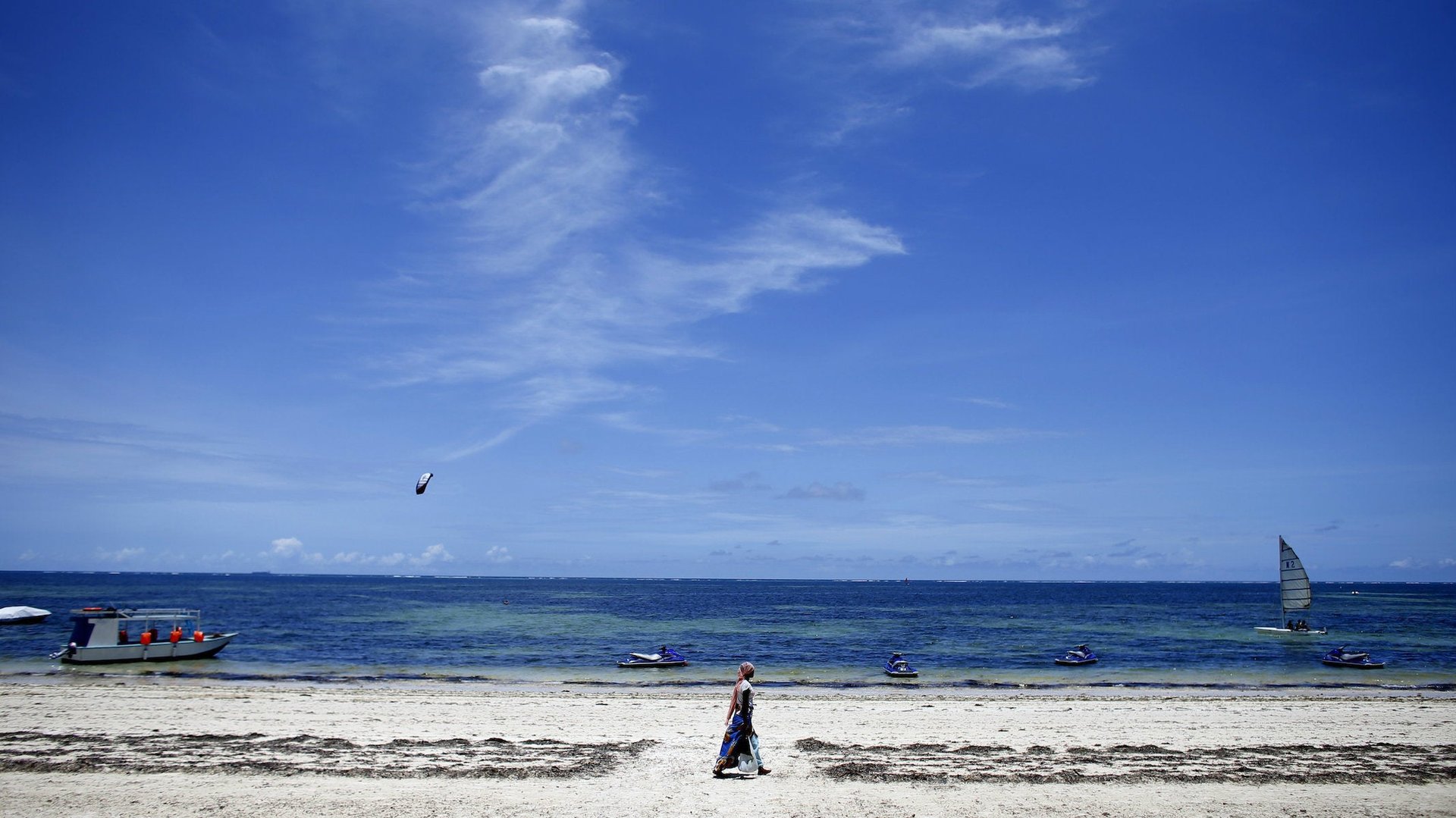Kenya’s middle class discovers that touring their country isn’t just for white people
Traditionally a major destination for tourists from around the world, Kenya has been struggling for years to attract visitors. Now, hoteliers, travel agents, and the country’s official tourism board are targeting another kind of patron: middle class Kenyans who are learning that exploring their country’s azure coastline and dramatic savannas isn’t just for foreigners.


Traditionally a major destination for tourists from around the world, Kenya has been struggling for years to attract visitors. Now, hoteliers, travel agents, and the country’s official tourism board are targeting another kind of patron: middle class Kenyans who are learning that exploring their country’s azure coastline and dramatic savannas isn’t just for foreigners.
Signs of a recovery were widespread past holiday season when schools were on break. Hotels in the coastal region saw an increase in bookings, with occupancy levels reaching over 90%, according to Mohammed Hersi, head of the Kenya Coast Tourist Association. Travel packages, once targeted at foreigners, are now being tailored for local travelers via lower prices on accommodation and airfare and special deals.
“Domestic tourism has become very important during the festive period and is a welcome addition to the mix. The growing middle class is making a difference in the market,” Njoroge Nguru, cofounder of Muse Digital that engages in marketing, promotion and management of tourism businesses, tells Quartz.
Kenyan travelers could help revive the country’s tourism industry, once Kenya’s top source of foreign currency. Attacks from the Somali-based militant group al-Shabaab have threatened the sector, which accounted for 10.5% of GDP (pdf) and over 200,000 jobs in 2014. (Al-Shabaab opposes Kenya’s deployment of troops to Somalia to support the government’s fight against the insurgent group.) As a result of security fears and travel warnings issued by Western countries, the number of foreign visitors to Kenya’s tourism-dependent coastal region has fallen by a quarter to 1.35 million in 2014, from 1.8 million in 2011, according to government statistics.
A campaign by the Kenyan Tourism Board, “Tembea Kenya,” or “Tour Kenya,” now in its third year, has focused on showing Kenyans the wonders their country has to offer. The campaign’s official advertisement, which has circulated widely online, depicts a young Kenyan man white water rafting, sauntering along white beaches, going on game drives, and riding a hot air balloon. Meanwhile, his friends at home watch television and ogle girls from a distance at a party. The tag line: “We’re out here. What about you?”
In response, Kenyans posted photos of their vacation destinations over the Christmas holiday under the hashtag #TembeaKenya.
Some say focusing on domestic travelers won’t help replenish Kenya’s foreign reserves. Calling the campaign “a rocking chair that won’t take us anywhere,” Nguru cautions that the project may have little impact over the long term. “In the national economy, tourism is an export product, one that brings important forex, without which the economy suffers. Jobs are lost and our shilling falls.”
Others say the initiative’s biggest contribution may be teaching Kenyans that travel and leisure are not the sole domain of foreigners. Hersi, of the Kenya Coast Tourist Association says, “What it has done is it demystified that coming and touring Kenya… is not a European thing or a white man thing.”